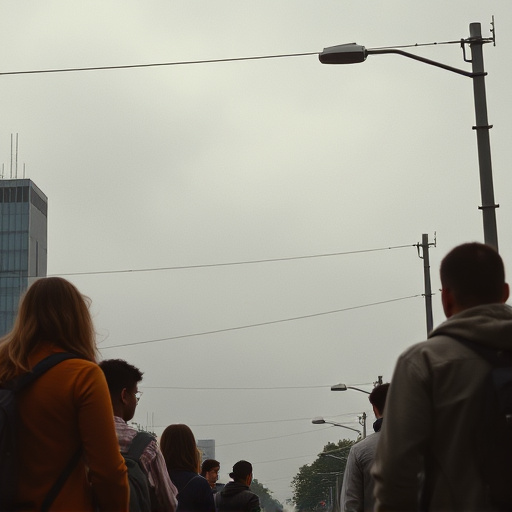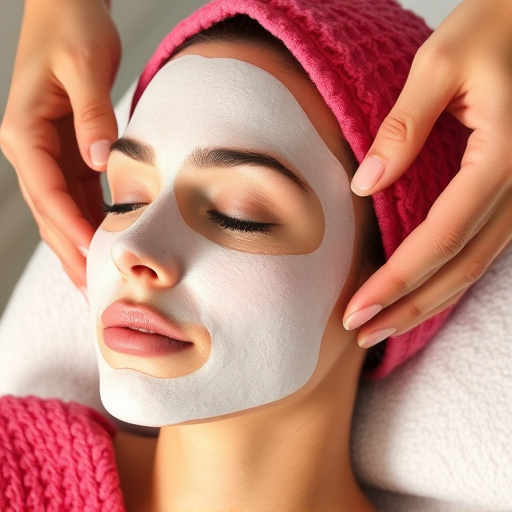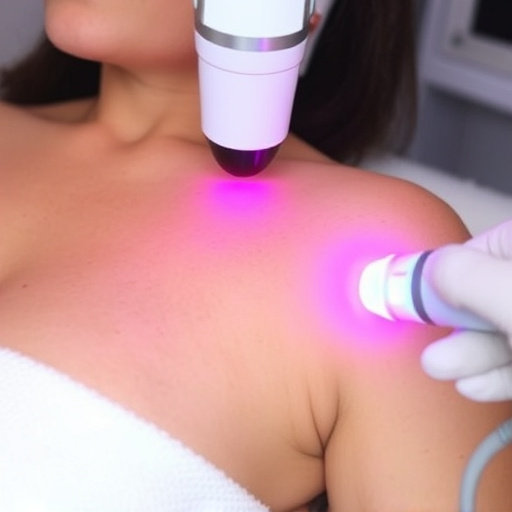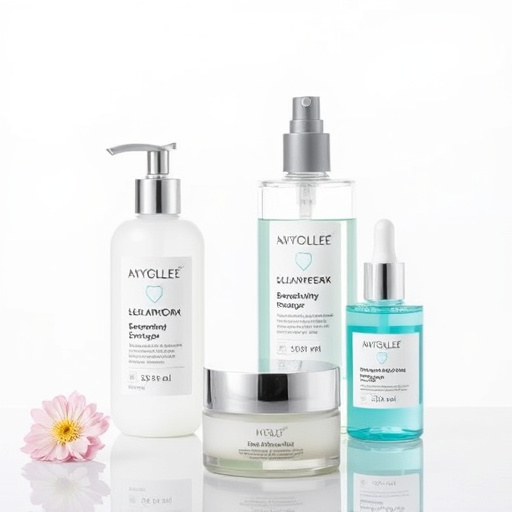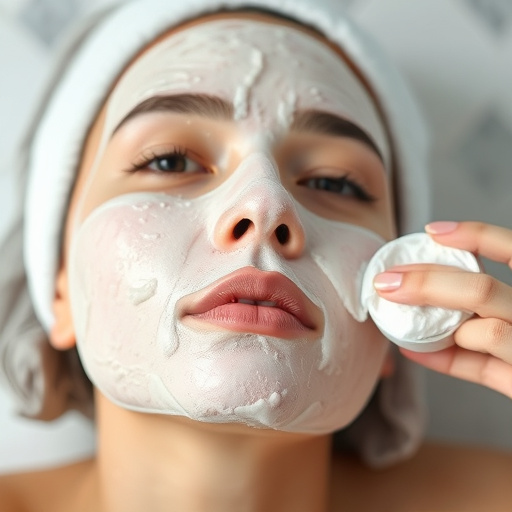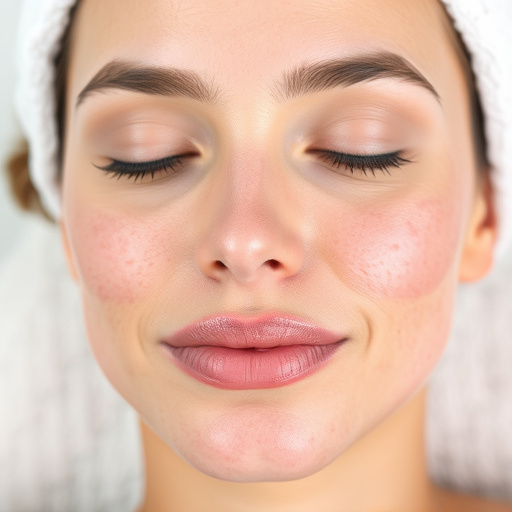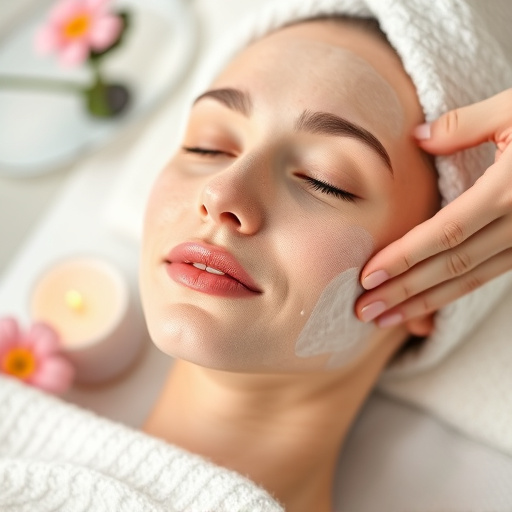Rosacea management involves a combination of understanding individual triggers, tailored skincare routines, and advanced medical procedures. Topical treatments, gentle routines with sensitive skin-formulated products, and strategic exfoliation help alleviate symptoms. Laser therapy, microdermabrasion, chemical peels, and IPL offer robust rosacea treatment for improved skin texture, brightness, and clarity.
Discover effective rosacea treatment options that work for you. Rosacea, a chronic skin condition marked by redness and inflammation, can be managed through various approaches. In this guide, we’ll explore two key sections: Understanding Rosacea: Causes and Triggers, and Topical Treatments and Skincare Routines, Medical Procedures and Advanced Therapies. Learn how to navigate the options available for clearer, healthier skin.
- Understanding Rosacea: Causes and Triggers
- Topical Treatments and Skincare Routines
- Medical Procedures and Advanced Therapies
Understanding Rosacea: Causes and Triggers
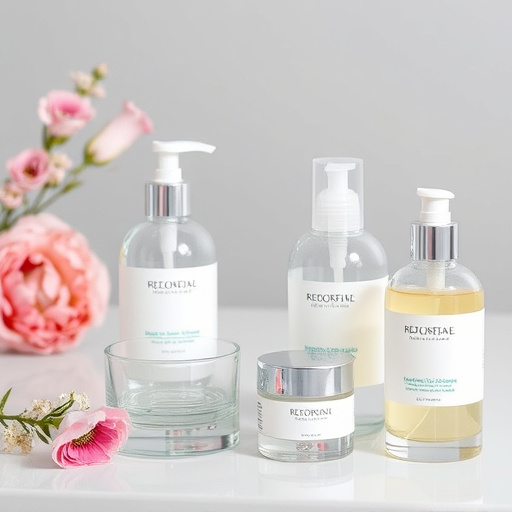
Rosacea is a chronic skin condition characterized by redness, small pus-filled bumps, and visible blood vessels on the face. While it can affect anyone, it’s most common in fair-skinned individuals, particularly those with a history of acne or sun damage. Understanding both the causes and triggers of rosacea is crucial for effective rosacea treatment.
The exact cause of rosacea remains unknown, but several factors contribute to its development. These include genetic predisposition, environmental influences, and certain lifestyle choices. Triggers for rosacea flare-ups can be diverse, ranging from temperature changes, strenuous exercise, and specific foods to stress, alcohol consumption, and even certain skincare products. Identifying personal triggers is an essential step in managing the condition effectively, alongside exploring tailored anti-aging treatments or procedures like chemical peels designed to improve skin health and minimize rosacea symptoms.
Topical Treatments and Skincare Routines
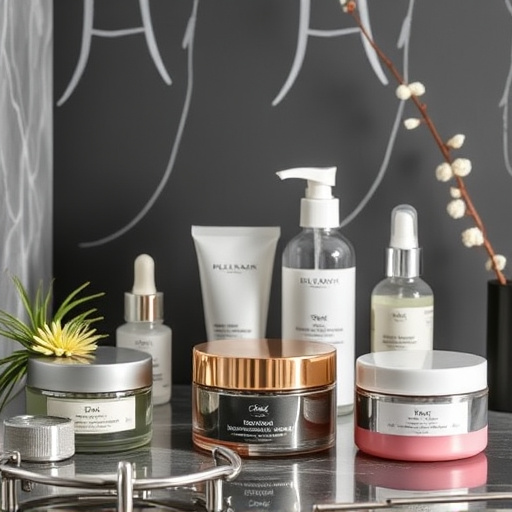
Many people living with rosacea find relief through topical treatments and consistent skincare routines. Over-the-counter creams containing ingredients like azelaic acid, niacinamide, or sodium hyaluronate can help reduce redness, inflammation, and pustules. These ingredients work by calming the skin, strengthening its barrier function, and promoting collagen production.
When it comes to skincare routines, consistency is key. A gentle, twice-daily cleansing regimen with a mild cleanser, followed by application of a hydrating facial or serum, and finishing with a broad-spectrum sunscreen, can significantly improve rosacea symptoms. Additionally, incorporating treatments like microneedling therapy or regular, non-irritating exfoliation (after consulting a dermatologist) may enhance skin tightening and overall texture. Remember, it’s crucial to choose products formulated specifically for sensitive skin to avoid exacerbating the condition.
Medical Procedures and Advanced Therapies
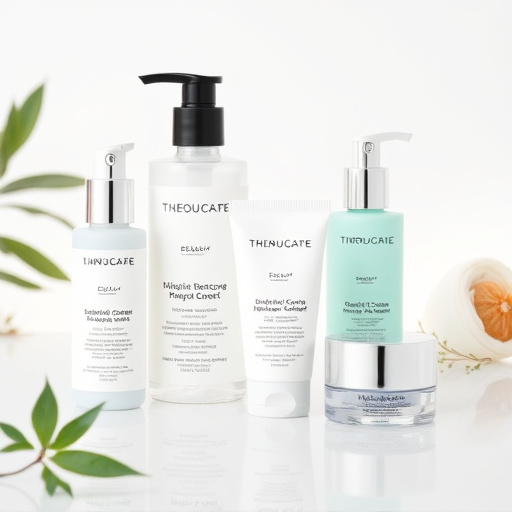
For those seeking robust rosacea treatment, medical procedures and advanced therapies offer promising solutions. Beyond traditional topical medications and lifestyle adjustments, dermatologists now employ a range of innovative techniques tailored to address specific rosacea symptoms. Laser therapy, for instance, has proven effective in reducing facial redness and dilated blood vessels by gently resculpting the skin’s surface.
Microdermabrasion and chemical peels are other medical procedures that can enhance skin brightening and overall skin health. These treatments work by exfoliating the outer layer of skin, removing uneven texture and revealing smoother, clearer complexions. Moreover, advanced therapies like intense pulsed light (IPL) therapy target specific pigmentations and vascular abnormalities associated with rosacea, contributing to a more even and youthful-looking complexion—a valuable aspect often considered within the realm of anti aging treatments.
Rosacea is a complex skin condition, but with the right approach, effective management is achievable. By understanding your triggers, adopting tailored skincare routines, exploring topical treatments, and considering advanced medical procedures, you can take control of your rosacea. Each person’s journey to clear skin is unique, so it’s essential to consult professionals who can guide you through the best rosacea treatment options available, ensuring lasting results and a confident complexion.


